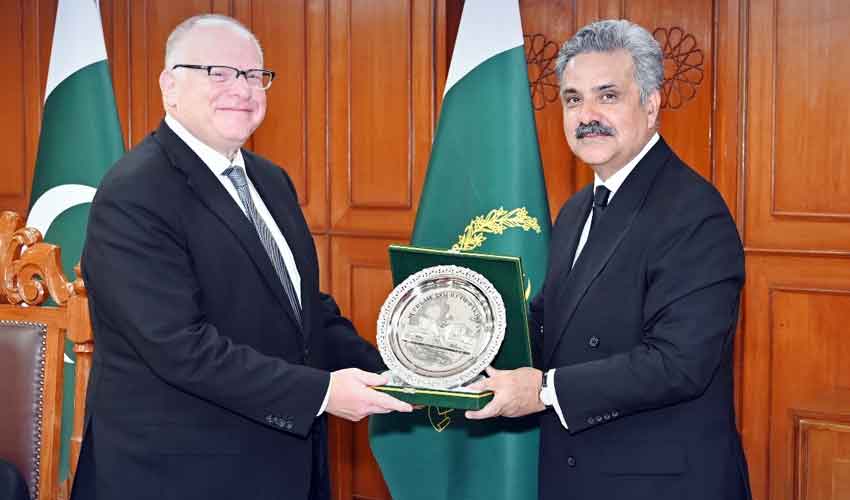A delegation from the International Monetary Fund (IMF), led by Joel Turkewitz, met with Chief Justice of Pakistan (CJP) Yahya Afridi at the Supreme Court on Tuesday, who is also the chairman of the Judicial Commission of Pakistan.
The meeting, held at the request of the Finance Division, focused on judicial reforms, accountability, and the judiciary’s role in ensuring institutional stability.
CJP Afridi informed the delegation that the judiciary is not accustomed to direct interactions with such missions, but this meeting is taking place because of the Finance Division’s request. He mentioned that he would be cautious in his words and ideas.
According to a statement issued by the Supreme Court, CJP Afridi welcomed the IMF delegation and provided an overview of ongoing efforts aimed at enhancing judicial efficiency and transparency. He emphasized that Pakistan’s judiciary operates independently, and it is his responsibility to uphold that independence.
The CJP discussed key constitutional developments related to the Judicial Commission of Pakistan (JCP), including senior judicial appointments, accountability mechanisms, and restructuring the JCP. He also proposed merging the Judicial Commission and the parliamentary committee to ensure greater transparency and efficiency in judicial selections.
The discussions also covered mechanisms for handling complaints against judges and ensuring a fair and robust accountability system. Chief Justice Afridi underscored the importance of maintaining judicial integrity, stating that transparency and accountability are essential for upholding the rule of law.
He further informed the delegation about the upcoming National Judicial Policy Making Committee (NJPMC) meeting, scheduled for the last week of February, with a critical agenda being finalized in conjunction with a variety of stakeholders. The CJP invited suggestions for inclusion in the agenda and welcomed the IMF delegation to provide input.
The IMF delegation recognized the judiciary’s role in ensuring legal and institutional stability and praised ongoing reforms aimed at improving governance and accountability. The conversation reinforced a shared commitment to increasing judicial efficiency and preserving the rule of law as a foundation for economic and social success.
The meeting was attended by the Supreme Court registrar, Supreme Judicial Council secretary, Judicial Commission of Pakistan secretary, Law and Justice Commission of Pakistan secretary, and Federal Judicial Academy director.
At the conclusion of the meeting, CJP Yahya Afridi presented a souvenir to the IMF delegation as a goodwill gesture, and the delegation expressed gratitude for the insightful discussions.
On Monday, the IMF mission visiting Pakistan held a series of high-level meetings with officials from various institutions, focusing on economic reforms, anti-corruption efforts, and financial crime prevention. The meetings lasted for an hour.
During other meetings, Pakistani officials briefed the IMF delegation on measures to curb corruption, prevent financial crimes, and combat money laundering. Special emphasis was placed on preventing suspicious transactions and terrorist financing, with officials stating that effective steps have been implemented in these areas.
The Federal Board of Revenue (FBR) also provided a detailed briefing on its digitalization initiatives, efforts to curb smuggling, and measures to prevent tax evasion. The IMF representatives stressed the need to digitize land records to enhance transparency and governance.
The IMF delegation has met with officials from:
- Federal Board of Revenue (FBR)
- Federal Land Commission
- Financial Monitoring Unit
- National Anti-Money Laundering and Countering Financing of Terrorism Authority
- Cabinet Division
- Ministry of Finance
- Ministry of Law



